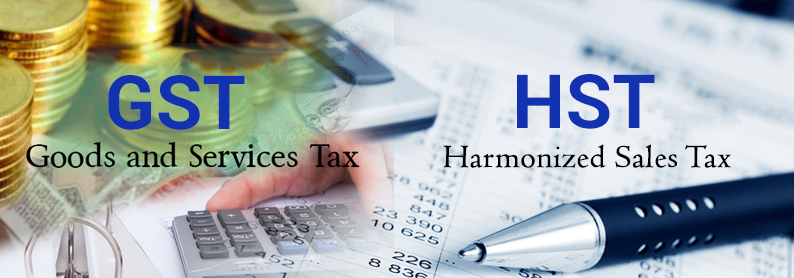
GST/HST for digital economy businesses
Overview
New rules for digital economy businesses are in effect as of July 1, 2021.
As of July 1, 2021, digital economy businesses, including digital platform operators, may have potential goods and services tax/harmonized sales tax (GST/HST) obligations under three measures that were announced in the Fall Economic Statement 2020 by the Government of Canada and revised as announced on April 19, 2021, following consultations with stakeholders. This means you may have new obligations, including registering, charging and collecting the GST/HST.
Administration and compliance approach
The government expects affected businesses and platform operators to comply with their obligations to register, collect, and remit the GST/HST set out under the new rules and legislative provisions to ensure that the GST/HST applies effectively and fairly to e-commerce transactions.
On April 19, 2021, the Government of Canada announced in the Federal Budget that the Canada Revenue Agency (CRA) will work closely with businesses and platform operators to assist them in meeting their obligations.
Where the affected businesses and platform operators show that they have taken reasonable measures but are unable to meet their new obligations for operational reasons, the CRA takes a practical approach to compliance and exercises discretion in administering these measures during a 12-month transition period starting July 1, 2021.
Before the CRA exercises its discretion in administering the new measures, an affected business or platform operator must first obtain the CRA’s written approval that such control will be exercised. Submissions may be made to the CRA during the 12-month transition period. Don’t hesitate to contact us for further information and assistance.
Type of businesses affected.
Depending on the type of business you are involved in, you may also be affected by more than one of the measures and need to consider their combined impact on your business. Even if you are not required to register and charge and collect GST/HST, your customers may have to begin paying GST/HST to a digital platform operator on your supplies if they are facilitated through a digital platform.
Types of businesses affected by each measure:
Cross-border digital products and services
These are non-resident vendors or non-resident distribution platform operator vendors who sell taxable digital products or services, such as online music streaming or traditional services, to Canadian consumers and entities not registered under the regular GST/HST regime. This also includes distribution platform operators who facilitate such supplies through their platform. A simplified GST/HST registration, reporting and remittance system is available to non-resident vendors, non-resident distribution platform operator vendors and distribution platform operators under this measure.
Supply of qualifying goods in Canada
These are non-resident vendors or non-resident distribution platform operator vendors who make the supply of qualifying goods (also known as “qualifying tangible personal property supply”), including goods that are delivered or made available in Canada, such as goods located in a fulfillment warehouse or goods shipped to a purchaser in Canada. This also includes distribution platform operators who facilitate the supply of qualifying goods through their platform.
Platform-based short-term accommodation
These are suppliers of taxable supplies of short-term accommodation in Canada or accommodation platform operators that facilitate such supplies through their accommodation platforms. A simplified GST/HST registration, reporting and payment (remittance) system is available to accommodation platform operators under this measure.
Don’t hesitate to contact RGB Accounting by phone at (416) 932-1915 or by email at [email protected] if you have any questions. We’ll be pleased to assist you.
Source: CRA
Newsletters
No Results Found
The page you requested could not be found. Try refining your search, or use the navigation above to locate the post.
Events & Sponsorship
No Results Found
The page you requested could not be found. Try refining your search, or use the navigation above to locate the post.
Articles & Publications
Keeping payroll on course during crisis
Staffing changes and government relief measures add to payroll management challenges during the pandemic Of the many business challenges that have emerged from the disruption of the COVID-19 crisis, the human resources implications have been some of the most difficult...
2 million Canadians who haven’t yet filed taxes could face benefits interruption
Even in the warped reality of the COVID-19 pandemic, Canadians must file their taxes to receive many of the benefits they’re entitled to. Around two million people could face interruptions to some federal and provincial payments if they wait too long to send in their...
CEWS Update – Federal Government redesigns CEWS for Period 5 and onwards
On July 17, 2020, the Government of Canada released details, as well as draft legislation, in respect of a redesigned Canada Emergency Wage Subsidy (CEWS) program effective from July 5, 2020. Pursuant to the backgrounder, the estimated total fiscal cost in 2020-21 for...
Canada Emergency Wage Subsidy (CEWS)
The Canada Emergency Wage Subsidy (CEWS) supports employers that are hardest hit by the pandemic, and protect the jobs Canadians depend on. The subsidy generally covers 75% of an employee's wages – up to $847 per week - for employers of all sizes and across all...
Canada Emergency Response Benefit
What is the Canada Emergency Response Benefit If you stopped working because of COVID-19, the Canada Emergency Response Benefit (CERB) may provide you with temporary income support. The CERB provides $500 a week for up to 16 weeks. How to apply We will start accepting...